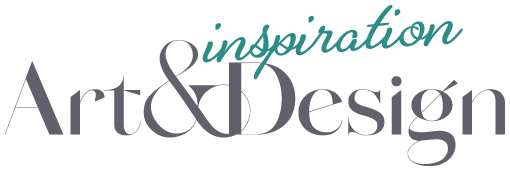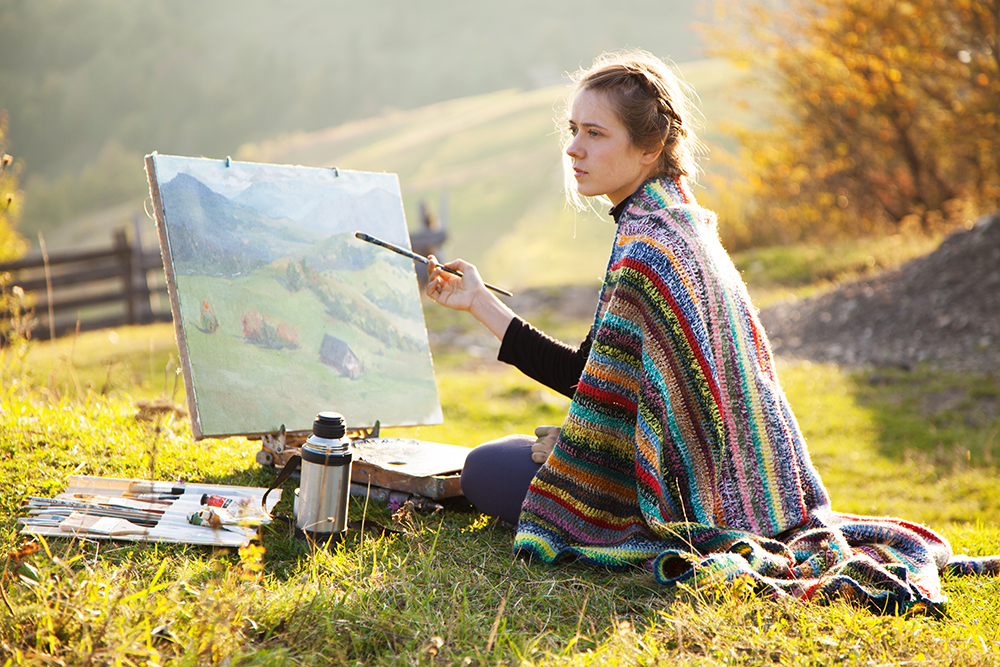5 Tips for the Self-Taught Artist: How to Hone in on Your Skills
Those who “teach” themselves art can understandably become frustrated, particularly as a beginner. You have a bit of skill, you realize that – but how do you nurture your talent and bring out the real “artist” in you? Whether you paint landscapes in watercolor, still life works in oil or acrylic, or love abstract works of art, sometimes it’s easy to feel as though you have reached your limit in terms of your skill or imagination.
However, as an artist did you know that there really is no limit when it comes to creative, imaginative, and beautiful art? You can learn to “hone” your skills and grow as an accomplished self-taught artist.
1. Your Mindset – Give Yourself Permission
To hone in on your skills, first hone in on believing you can. Self-doubt is the biggest quencher of creativity. Artists are sensitive and harder on themselves. It’s easy to give up when you don’t believe in your work. Don’t let the fear of other people’s judgement stop you from creating your work. Judgement ties in with self-doubt. Give yourself permission, sometimes you can’t wait for the people in your life to give you the approval.
2. Don’t compare your work with other artists.
Sure, it seems almost impossible to do. You see other people’s works of art and are amazed at their talent. You cruise Instagram looking at the talent of artists throughout the world and you feel… “name your feeling“.
You are an individual, so your work should reflect your own skill, talent, and creativity. Other artists’ work can inspire you and give you ideas, but never look at others’ work and let it make you feel inferior. As artists, we never ever stop growing in regards to our skills, talent, and learning – it’s an ongoing process. Don’t stop!
3. Focus.
In a busy world, it’s easy to get distracted. Sometimes you look at a blank canvas or paper, and you think that’s as far as you will get. Disconnect from distractions, sit and relax your mind; block out everything else, focus on the energy of what you are creating – This is the power of art.
Let your creative juices flow, and when they begin, don’t hold back! Put those beautiful colors on the canvas and let it lead where it may.
4. Keep it simple.
When you are in the beginning phase and just starting to develop your talent, stick with one or two media such as watercolor or charcoal. Start with a simple subject, and don’t even attempt a project that’s really intense or complex, such as painting a huge panorama depicting horses, meadows and spicy colored woolen blankets.
You should start simple, drawing or painting fruits, bowls, water pitchers, and other things that are really basic. As you master the most basic, you can build out and begin adding shadows, light, and other elements that give your work dimension. Eventually you will find yourself painting the most complex art works that seem to come alive on the canvas, filled with texture, shadows, light, color – life!
5. Gratitude: Feel blessed for the talent you have been given.
Not everyone has the ability to create art, and not everyone can even learn it with someone else teaching. If you have been blessed with artistic ability, be happy with doing your personal best, and know that studying your favorite artists’ works and practice will take you to new levels that will excite and inspire you!
Honing your skills when you’re an artist is a process that continues forever; be inspired, be motivated, and most of all let your art reflect yourself and your passion!
You Might Find these Articles Helpful:
Am I good enough: Beyond Fear
Is this you? Common Traits of Artists
Essential Tips for Keeping your skills and Life in Order
Getting Paid what your worth – How do you value your work?












Thanks a lot for your article. The problem is that everyone wants to be good fast but the truth is that it’s simply impossible to get far in a short amount of time.
Agreed, as you practice you get better, this is the reward. Time and practice.
Thank you…. these were just the words I needed to hear to keep moving forward in watercolor.
I seem to have the opposite problem when “comparing” my work to others’. I don’t get discouraged and think, “Why can’t I do that.” I look at their work and think, “Mine is as good as that. Why wouldn’t someone want to buy mine too?” Especially if they are very abstract or simple like the paimting of s simple red dot in the middle of a blank canvas selling for thousands. This can make me seem arrogant or not interested in improving, which is not true of me at all. So the part I get what you might call jealous of is more other artists’ fan base ot ability to get their stuff sold.
cool beans! 🙂 thanks alot, I think the hardest part is comparing yourself to others, other than that, thanks for the article!<3 keep writing! :3
hmm excuse me , i always compare my sketches with my friends skethes so i can learn there that what are things missing in my sketches what things i can improve.
and i have made lots of changes in my sketches, what i want to say is comparing is not a bad thing but a healhthy comparision is required…..
THERE IS NO ASHAME IN COPYING GOOD THINGS FROM OHERS
Thanks for the comment! I agree comparison is good and comparing work. I was coming from the point of view (my experience), that I would get discouraged when I would compare my work to some because their work is so good and I felt I could never be that good. As artists it easy to get discouraged when we do this. I see art as self expression now and accept my work for what it is. My expression. This book has helped me shed more light on the topic. Damn Good Advice (for people with talent) by George Lois.
Walk before run..but i want to run so badly.
Thank you for this article. I drew as a teen and loved it but was convinced I wasn’t talented enough to be a “real artist,” so I stopped. 23 years later, I felt compelled to paint. I am teaching myself through practice, trial and error, and sometimes worry I can’t “really” pursue painting without formal training. I think I have a little natural ability, but generally I’m so clearly an amateur. Your blog comforted and inspired me. Thank you.
Here is what i think the deal is, forget about selling your art. A red dot in the middle of a blank canvas idea is taken, no big deal. Assure yourself that it was another time, place, and name that somehow earned the respect to that painting. You are responsible for creating if you are an artist, it is up to the market to decide if they like YOU. They might also like your paintings but do YOU come through in your paintings. No one will look at your paintings if the person behind it does not show. Have you been painting a long time? That does not always mean you get to reap the rewards, other than you learned, which is massively important, but practically no artist does what they do to :sell: anyway. Artist do what they do because they are obsessed, beyond any reasonable control, with an idea that either haunts them, amuses them, drives them crazy,…any sort of emotion that moves them to express, is where art begins. As you find your way to this place you become more and more uninhibited, and you become good. Think of it like sex. You are supposed to be a vulnerable mess before anyone notices that there is something real happening before their eyes.
Kaarigari Foundation is an best artist community and a haven for those passionate about Architecture, Art, and Architecture for artists and architects alike! As a non-profit organization, our driving force is to provide every artist with a platform to showcase their work. In India, a land brimming with diverse artists and art forms, countless artworks go unnoticed and talent often goes unrecognized. Our mission is to change that.